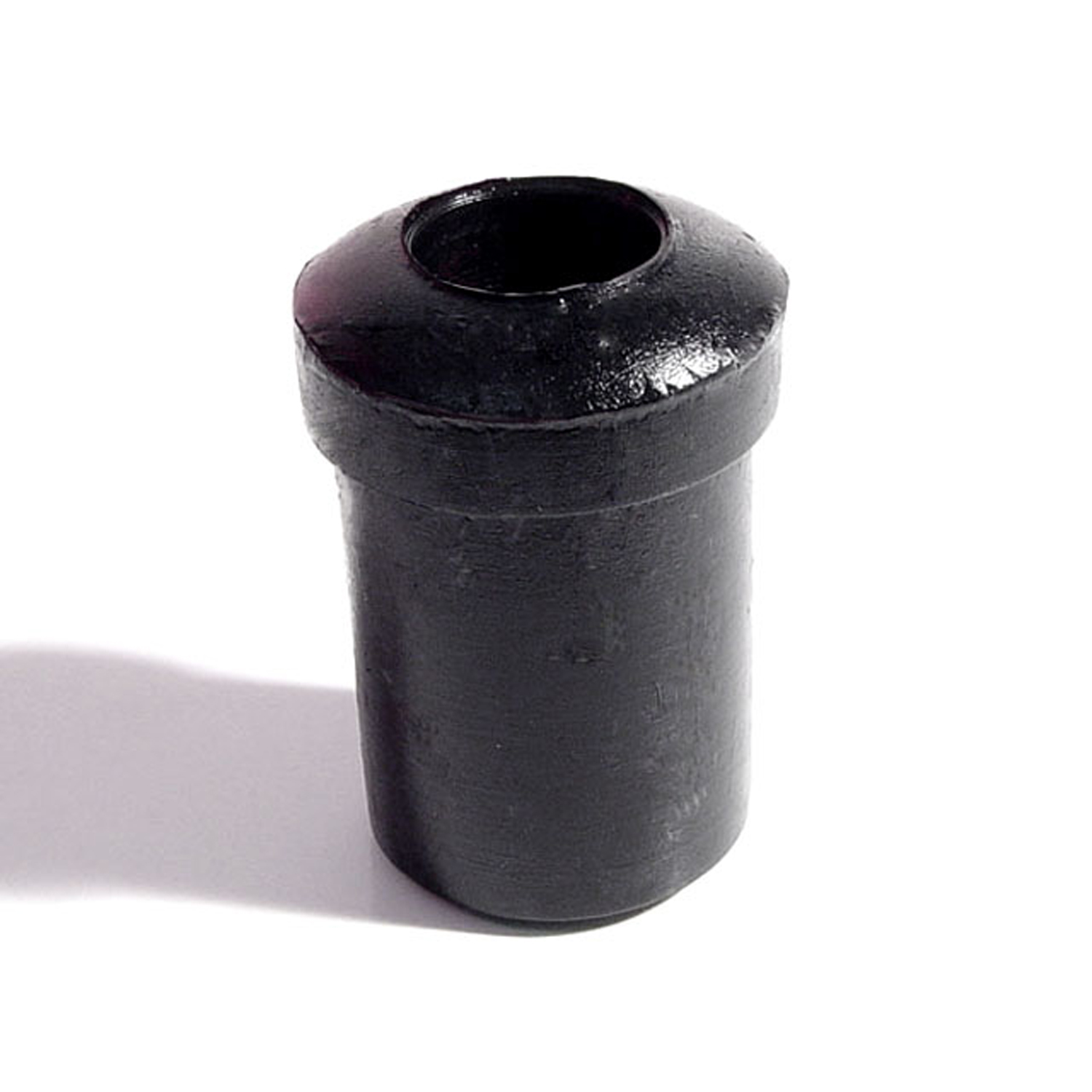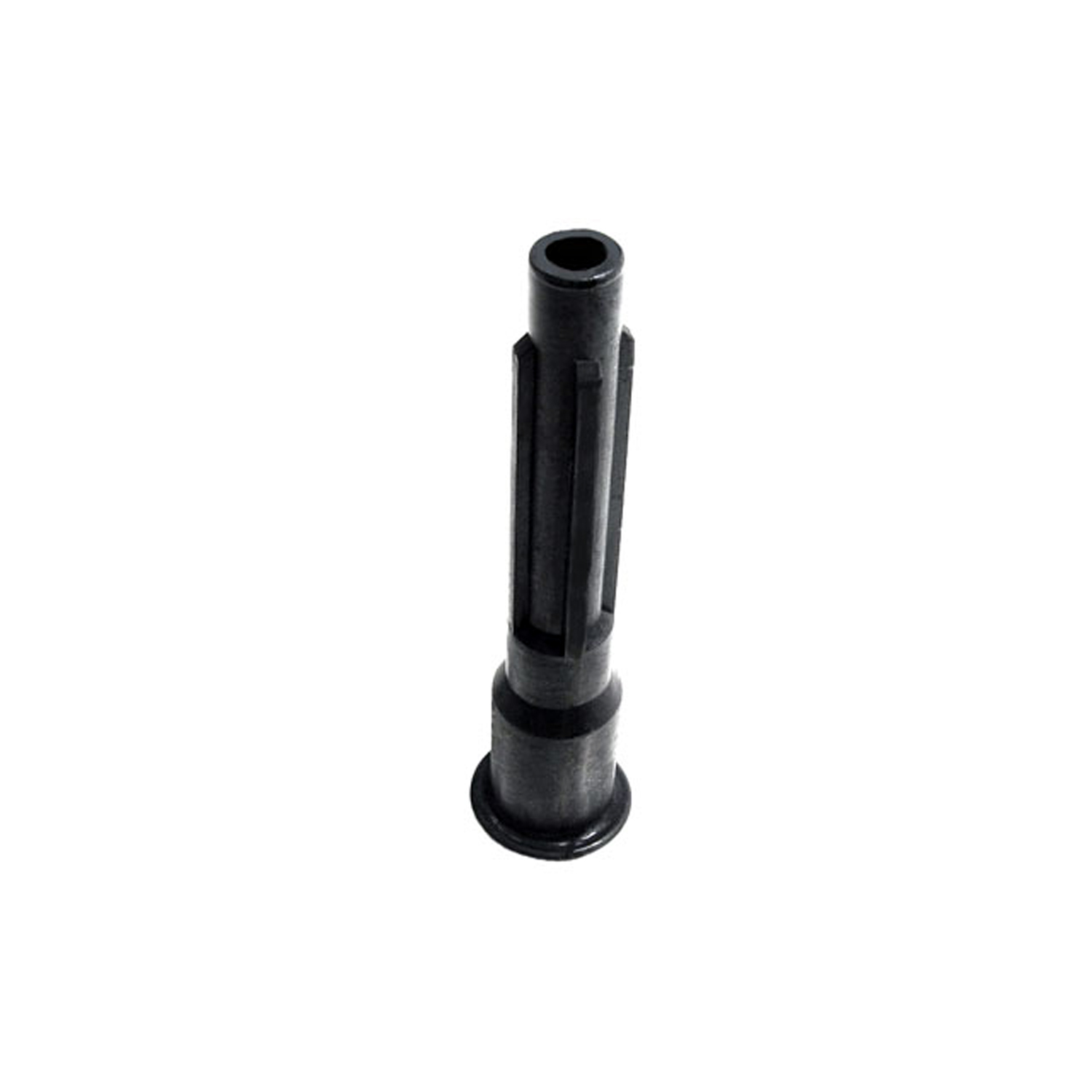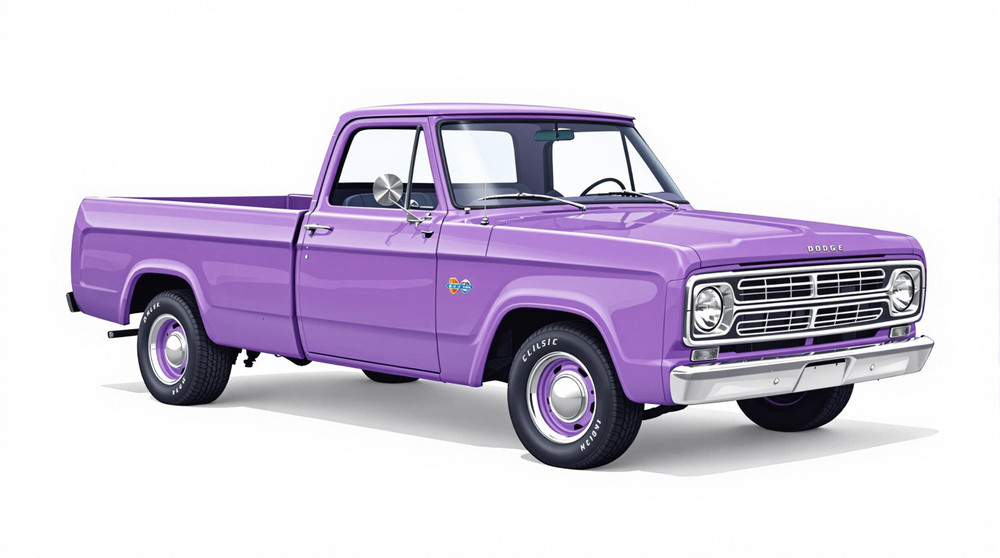Image of 1968 Dodge P300, Note: These illustrations use artistic license and may differ from actual historical models.
Performance Metrics
Fundamental Metrics
Emotional Appeal
MMP Rating
| Engine Specifications | |
|---|---|
| Engine Options | 318 cu in (5.2 L) LA V8 |
| Displacement Range | 318 cu in (5.2 L) |
| Horsepower Range | 200-230 hp |
| Torque | 310 lb-ft |
| Compression Ratio | 9.2:1 |
| Ignition System | Electronic Ignition |
| Cooling System | Water-cooled |
| Transmission and Drive | |
| Drive Type | Rear-wheel drive |
| Transmission Type | 3-speed automatic or 4-speed manual |
| Fuel and Efficiency | |
| Fuel System Type | Carburetor |
| MPG | Estimated 10-12 MPG |
| Dimensions and Brakes | |
| Brakes | Drum brakes |
| Wheelbase | 127 inches |
| Weight | Estimated 4000-5000 lbs |
Note: Specifications for classic cars are given to the best of our ability, considering the limited and variant data available.
The Unheralded Workhorse: The 1968 Dodge P300
When the conversation turns to classic vehicles, the 1968 Dodge P300 rarely takes center stage, yet this unsung hero of the late 60s automotive scene deserves its moment in the spotlight. Born from the industrious efforts of Dodge, a division of Chrysler Corporation, the P300 was designed to serve as a dependable utility vehicle. Its robust construction and versatile nature made it a staple for small businesses and tradespeople of the era. A unique fact that might pique your interest: the P300 was a precursor to the modern cargo van, laying the groundwork for today's commercial transport solutions.
Design and Innovation
The exterior of the 1968 Dodge P300 was utilitarian, yet it possessed a certain charm with its no-nonsense, boxy silhouette that prioritized function over form. The interior was spartan, reflecting its workhorse status, with durable materials that could withstand the rigors of daily use. Technologically, it boasted features that were advanced for commercial vehicles of its time, such as improved suspension systems designed to handle heavy loads. Color options for the P300 were typically straightforward, with many owners opting for white or other neutral shades that provided a blank canvas for business logos and advertising. The most iconic body style was arguably the panel van configuration, which offered ample space for goods and equipment, making it a popular choice among tradesmen.
Historical Significance
The 1968 Dodge P300's impact on automotive design was subtle yet significant. It demonstrated that commercial vehicles could be both reliable and adaptable, influencing the design of subsequent utility vehicles. Its straightforward design ethos set it apart from contemporaries that often sacrificed practicality for style, ensuring its lasting influence on the commercial vehicle segment.
Performance and Handling
Performance-wise, the P300 was not designed to break any speed records. However, its powertrain was engineered to deliver reliable performance under load, with a focus on torque rather than outright speed. Handling was predictable and sturdy, if not particularly agile, allowing drivers to navigate urban settings and transport goods with confidence. The driving experience was characterized by the unmistakable rumble of its engine and the honest feedback from the road that came through its no-frills ride.
Ownership Experience
The Dodge P300 was commonly used as a delivery vehicle or service van, prized for its reliability and ease of maintenance. Its simple mechanical layout meant that repairs could be performed by the average owner with basic tools and knowledge. While not typically seen as a show car or racing vehicle, its robustness has earned it a place in the hearts of classic utility vehicle enthusiasts.
Fun Facts
A bit of trivia for the classic car aficionado: while not known for celebrity ownerships or high-profile appearances, the P300 has been a quiet contributor to numerous businesses throughout its lifetime. It didn't set any speed records but held its own in terms of sales within its market segment. As for criticisms, some may have found its utilitarian design too basic or its performance lacking in excitement, but these were often overshadowed by its practical virtues.
Collector's Information
Today, the 1968 Dodge P300 holds a unique niche in the collector's market. While production numbers are not well-documented, it's safe to say that surviving examples are relatively rare. The value range for collectors can vary widely based on condition and originality, with well-preserved models fetching higher prices. As a guess, a fully restored P300 could sell anywhere from $10,000 to $30,000 or more, depending on various factors. The market trend seems to show a slight appreciation in value as nostalgia for vintage commercial vehicles grows.
Conclusion
The 1968 Dodge P300 may not have been the star of any blockbuster movie or the poster vehicle of its time, but it played an essential role in the evolution of commercial transport. Its durable design and practicality have cemented its place in automotive history as a true workhorse. For those who appreciate the unsung heroes of the road, the P300 stands as a testament to the value of steadfast reliability and service.
1968 Dodge P300 Catalog of Parts
 1968 Dodge P300 Spring and Shackle Bushing. 1" bottom O.D-BN 20Spring and Shackle Bushing. 1" bottom O.D. X 1-5/8" high, with 9/16" I.D. Each
1968 Dodge P300 Spring and Shackle Bushing. 1" bottom O.D-BN 20Spring and Shackle Bushing. 1" bottom O.D. X 1-5/8" high, with 9/16" I.D. Each 1968 Dodge P300 Flexible Spark Plug Boot, used on Hemi's with power brakes-RP 1-MFlexible Spark Plug Boot, used on Hemi's with power brakes. 4" long, 5/16" upper i.d., 5/8" lower i.d. Each
1968 Dodge P300 Flexible Spark Plug Boot, used on Hemi's with power brakes-RP 1-MFlexible Spark Plug Boot, used on Hemi's with power brakes. 4" long, 5/16" upper i.d., 5/8" lower i.d. EachWhy Choose Metro?
For over 100 years, Metro Moulded Parts has been the pinnacle of quality in classic car restoration parts. Our commitment to precision and authenticity in every component ensures a perfect fit and an OEM-level appearance.
- Expert Craftsmanship & Quality: Each part is a testament to our dedication to reliability and perfection, crafted from original designs and thoroughly tested.
- Advanced Technology: We use cutting-edge techniques to create flawless, long-lasting parts that surpass others in performance.
- SuperSoft Sponge – The Ultimate Door Seal: Not only are our door seals 30% softer than competitors', but they're also guaranteed to never leak. They effectively reduce wind and road noise, enhancing your classic car's comfort and driving experience.
- Proudly American: Our parts are a product of American craftsmanship, made in the USA with a spirit of excellence and heritage.
- Unrivaled Warranty: We back our products with a 30-year industry-leading warranty, a testament to our confidence in their quality.
Join us in preserving the legacy of classic cars with parts that are crafted for perfection, not just made.

